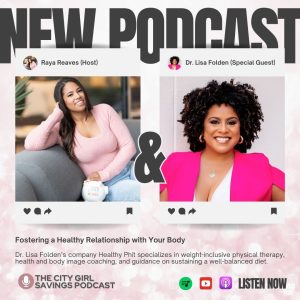Do you suffer from headaches? Your day-to-day routine might be to blame. Fortunately for you, most of these hidden headache triggers can be easily fixed. According to medical studies, there are a total of fourteen different types of headaches you can experience. Your headache symptoms can help you determine which type of headache you’re experiencing. Check out these six surprising health concerns that may be causing those awful headaches.
#1 Not Drinking Water
Headaches can have causes that aren’t due to underlying disease. Examples include lack of sleep, an incorrect eyeglass prescription, stress, loud noise exposure, or tight headwear.
Many times, a headache is also associated with not consuming enough water and becoming dehydrated. When you get dehydrated, your brain tissue loses water, causing your brain to shrink and pull away from the skull. This triggers the pain receptors surrounding the brain, giving you a headache.
Dehydration also causes your blood volume to drop that in turn lowers the flow of blood and oxygen to the brain. Drink plenty of water to deal with this headache trigger!
#2 Computer Use
Those of us that are working from home may be finding that we are looking at the computer screen longer than normal. If you’re anything like me, sometimes you’re working into the wee hours of the night.
Headaches from our computers are often caused by computer vision syndrome (CVS). In the simplest terms possible, it’s because computer screens emit blue light, which is designed to mimic the sun.
If you spend extended periods of time on your computer, you might get a headache due to glare on the screen, poor lighting in your workspace, improper computer brightness, and color, or a combination of all these factors.
Try using a computer application that adjusts screen brightness and color, and take regular breaks from being in front of a screen!
#3 Coffee
Oddly enough, what makes caffeine effective in pain relief can also cause headaches. Since caffeine narrows the blood vessels that surround your brain, when you stop taking it they expand again, and that can cause pain.
When you combine caffeine with pain relievers, this condition is more likely. Coffee headaches are quite common: more than a billion people reportedly suffer from migraines worldwide. Headaches can also occur if your dosage tends to change from day to day drastically.
The absolute best rule of thumb is to drink coffee is in moderation. We say moderation because there are some positives in consuming caffeine. However, you should be especially cautious if you suffer from headaches—after all, you know your body better then anyone.
#4 Vitamin Deficiency
If you experience pounding headaches, examining your diet and lifestyle could be key. In some cases, a vitamin deficiency leads to a worsening of headaches or even migraines.
Studies have shown that a diet deficient in vitamins and minerals like vitamin D, vitamin B6, folic acid, magnesium, and vitamin B12 could contribute to frequent migraines and other health issues.
Eat more foods like legumes, nuts, seeds, leafy vegetables, and fortified foods like breakfast cereals. There is also good evidence that magnesium deficiency can contribute to migraines. Magnesium is considered a natural “relaxer” of the muscle and nervous system.
#5 Mobile Device Use
Cradling your phone between your ear and your shoulder for calls lasting longer than a couple of minutes can strain your neck and lead to tension headaches. Tension headaches are the most common type of headache and feel like a constant ache or pressure around the head, or a headache in the back of the head or neck.
Tension headaches are not as severe as migraines and aren’t usually accompanied by nausea and vomiting, which means they rarely stop someone from continuing their regular activities (so they’re just a huge nuisance).
Over-the-counter treatments, such as aspirin, ibuprofen, or acetaminophen (Tylenol), are usually sufficient to treat tension headaches, which experts believe may be caused by contraction of neck and scalp muscles (including in response to stress), and possibly changes in brain chemicals. Try to use your hands-free headset, or the speaker option, whenever possible to avoid experiencing tension headaches.
#6 Lack of Back Support
Believe it or not, most chairs are made for the average 5-foot-8 man; if your chair is too big, it might not support your back, causing strain and headaches, says New York City physical therapist Karen Litzy.
Low back pain and headache are the leading causes of disability worldwide. Low back pain has a high healthcare burden, and in the most recent global burden of disease study, both low back pain and migraine were featured in the five leading causes.
People with both headache disorders and low back pain might constitute a neglected group that could have both conditions managed in combination rather than as separate entities. Finding a chair that fits your body or using cushions to properly support your back can help!
Related: 6 Easy Ways to Be Healthier Instantly
If you or someone you know has been experiencing headaches at a high volume, please see or speak with your primary care provider or healthcare provider to get the proper help needed. The unfortunate truth is we cannot determine the internal issues by looking at our body from the outside, and seeking the correct medical care is always best. Have you ever received ahead from one of these surprising ways? If yes, how did you resolve it?
Check us out on our other social platforms to keep up with all the latest finance gems, and lifestyle tips via our Instagram and Twitter @citygirlsavings. Additionally, join in the convo with the City Girl Savings community via our Facebook page. We always love hearing from members!





